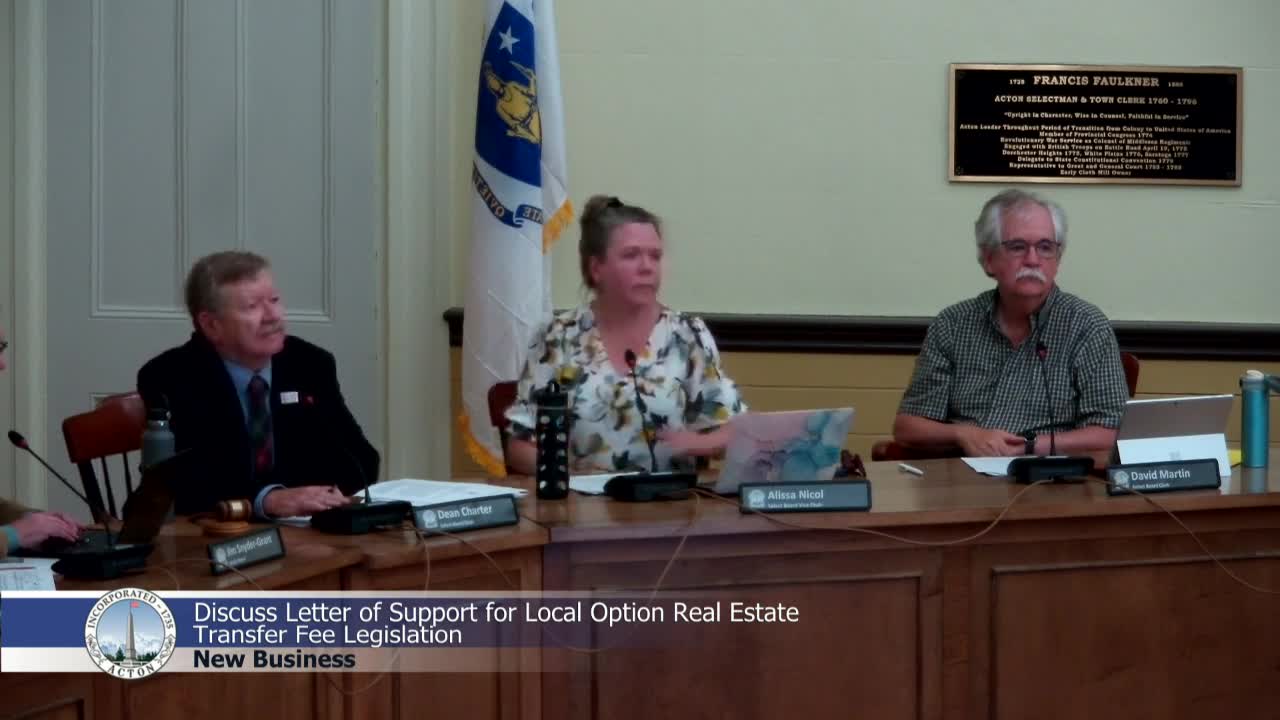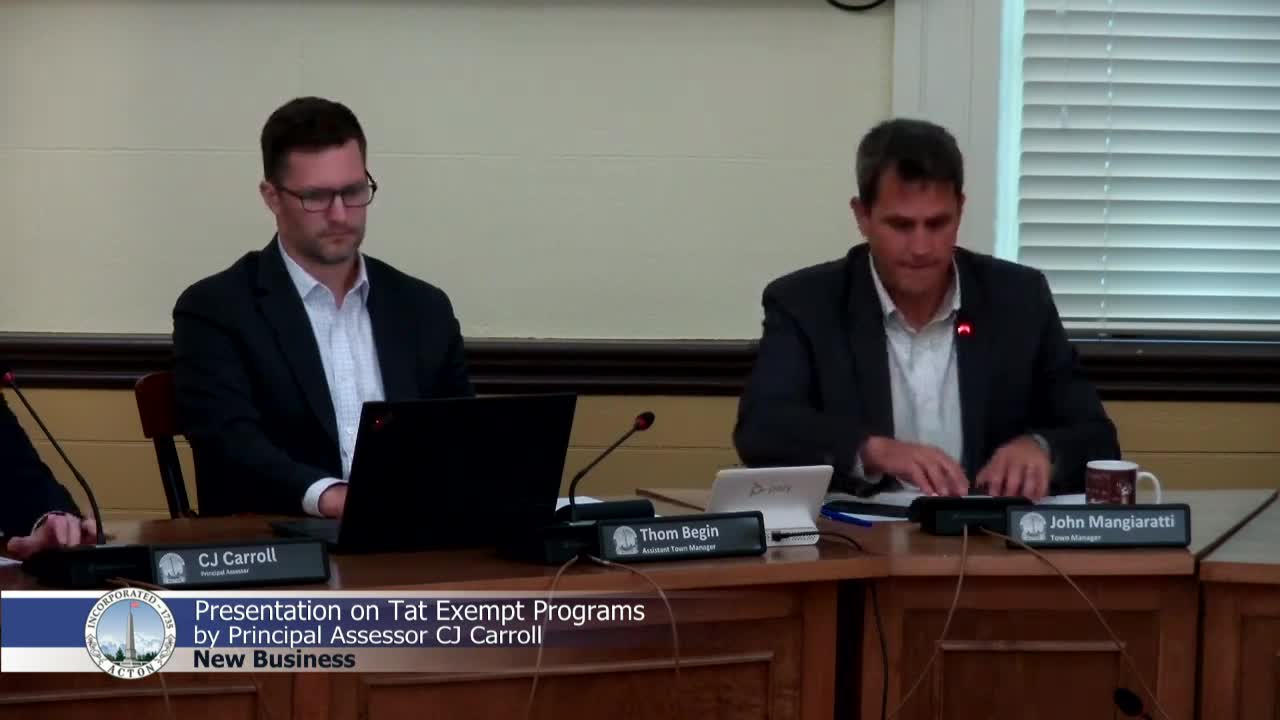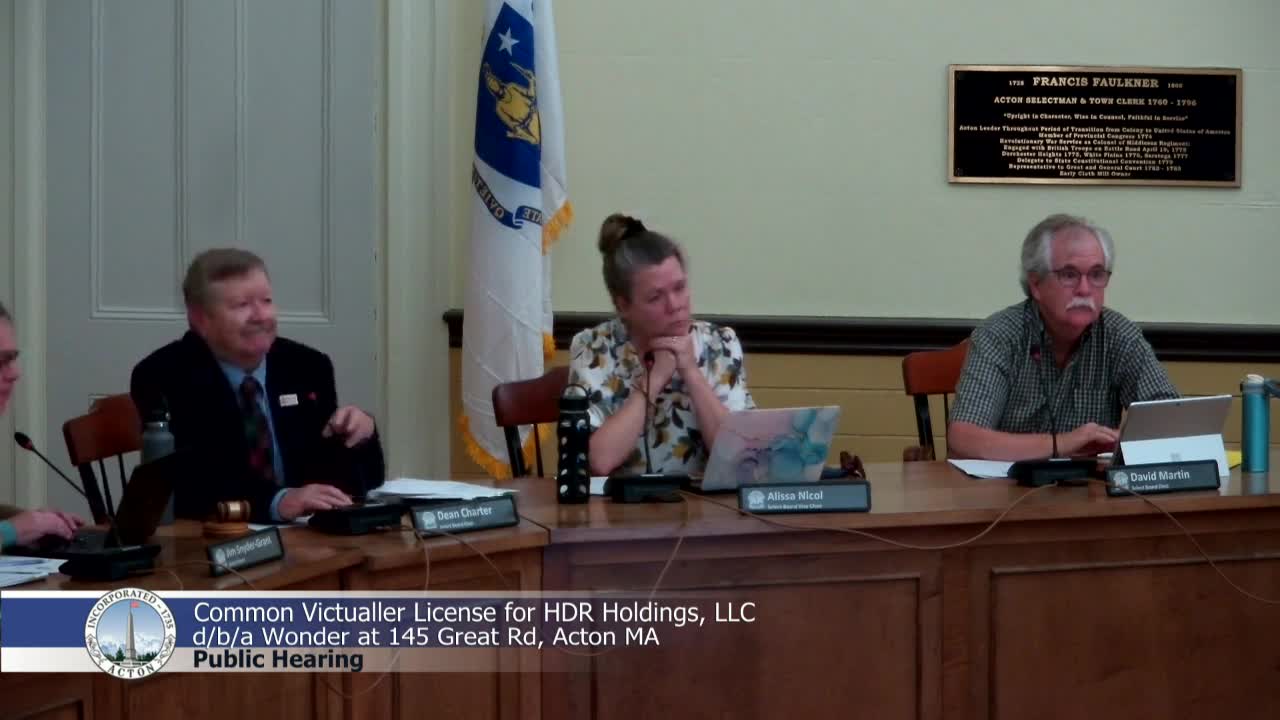Article not found
This article is no longer available. But don't worry—we've gathered other articles that discuss the same topic.

Select Board backs local-option real-estate transfer fee to fund affordable housing; staff analysis shows modest potential revenue

Acton assessor outlines tax-exemption programs and new state option to incentivize affordable long-term rentals

